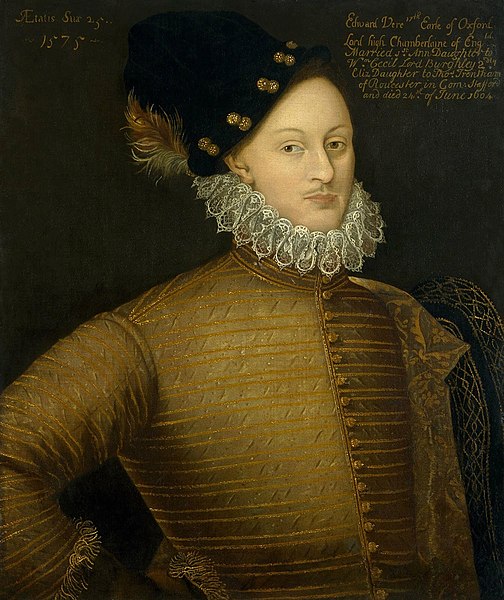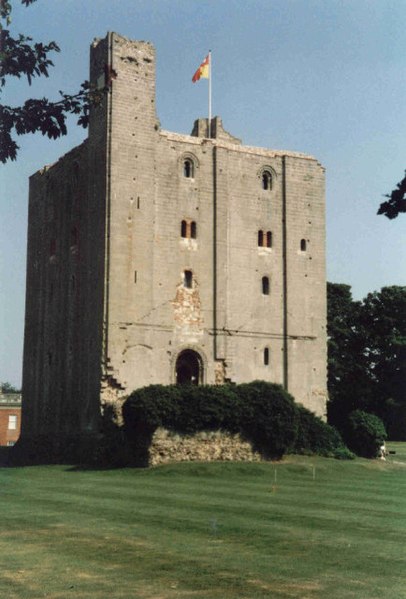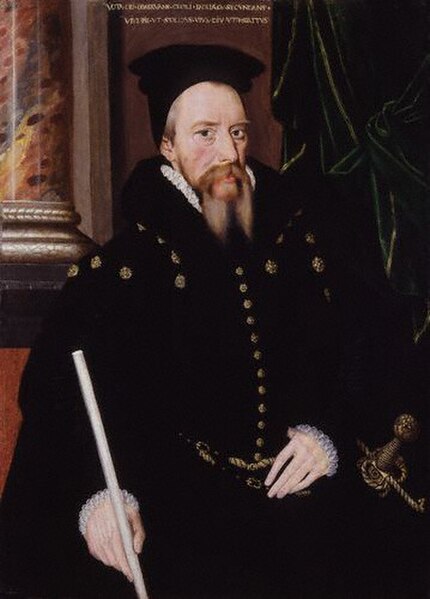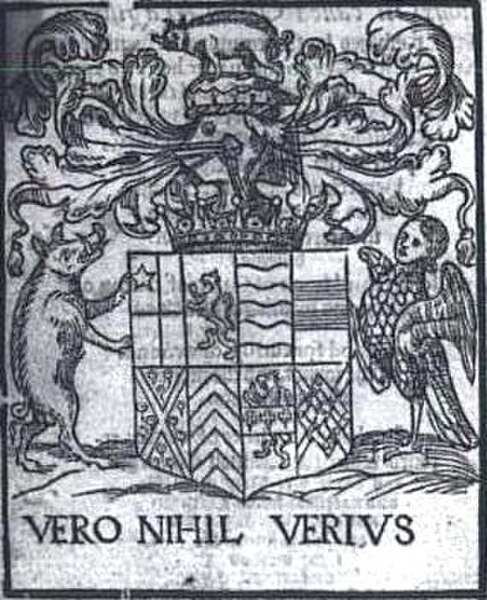Oxfordian theory of Shakespeare authorship
The Oxfordian theory of Shakespeare authorship contends that Edward de Vere, 17th Earl of Oxford, wrote the plays and poems of William Shakespeare. While historians and literary scholars overwhelmingly reject alternative authorship candidates, including Oxford, public interest in the Oxfordian theory continues. Since the 1920s, the Oxfordian theory has been the most popular alternative Shakespeare authorship theory.
Edward de Vere, the 17th Earl of Oxford, is the most popular alternative candidate for the author behind the alleged pseudonym, Shakespeare. Unknown artist after lost original, 1575; National Portrait Gallery, London.
Looney's Shakespeare Identified (1920) began the modern Oxfordian movement and made Oxford the most popular anti-Stratfordian candidate.
J. Thomas Looney, founder of the Oxfordian theory, as a young man
Title page of the first quarto King Lear, one of 12 plays scholars say were written after Oxford's death in 1604. Oxfordians say that no direct evidence exists that any of the plays were composed after 1604.
Edward de Vere, 17th Earl of Oxford
Edward de Vere, 17th Earl of Oxford, was an English peer and courtier of the Elizabethan era. Oxford was heir to the second oldest earldom in the kingdom, a court favourite for a time, a sought-after patron of the arts, and noted by his contemporaries as a lyric poet and court playwright, but his volatile temperament precluded him from attaining any courtly or governmental responsibility and contributed to the dissipation of his estate.
17th-century portrait based on lost 1575 original, National Portrait Gallery, London
The surviving keep of Hedingham Castle, the de Vere family seat since the Norman Conquest
William Cecil, 1st Baron Burghley, the Queen's Secretary of State and de Vere's father-in-law, c. 1571.
Coat of Arms of Edward de Vere from George Baker's The composition or making of the moste excellent and pretious oil called oleum magistrale (1574)







